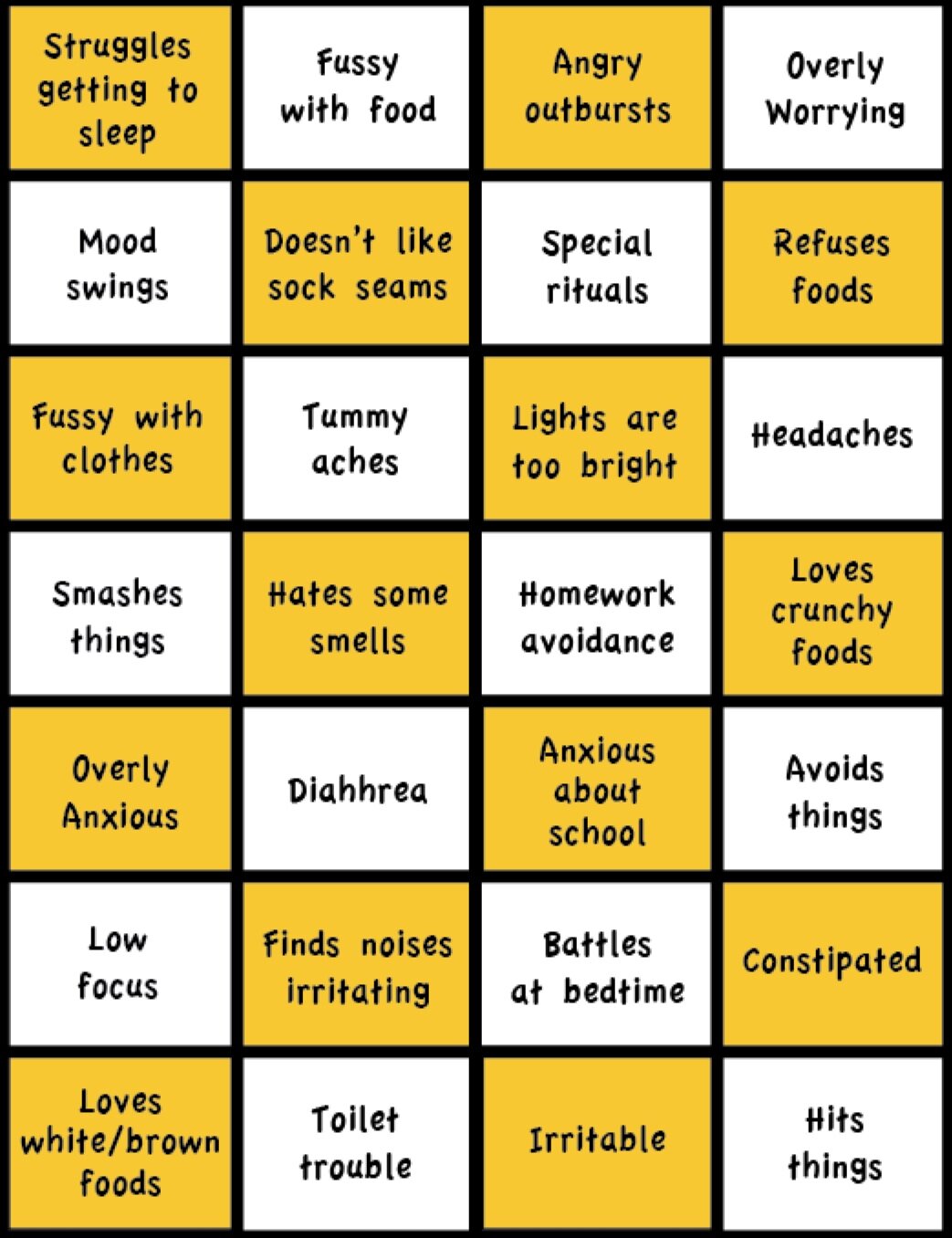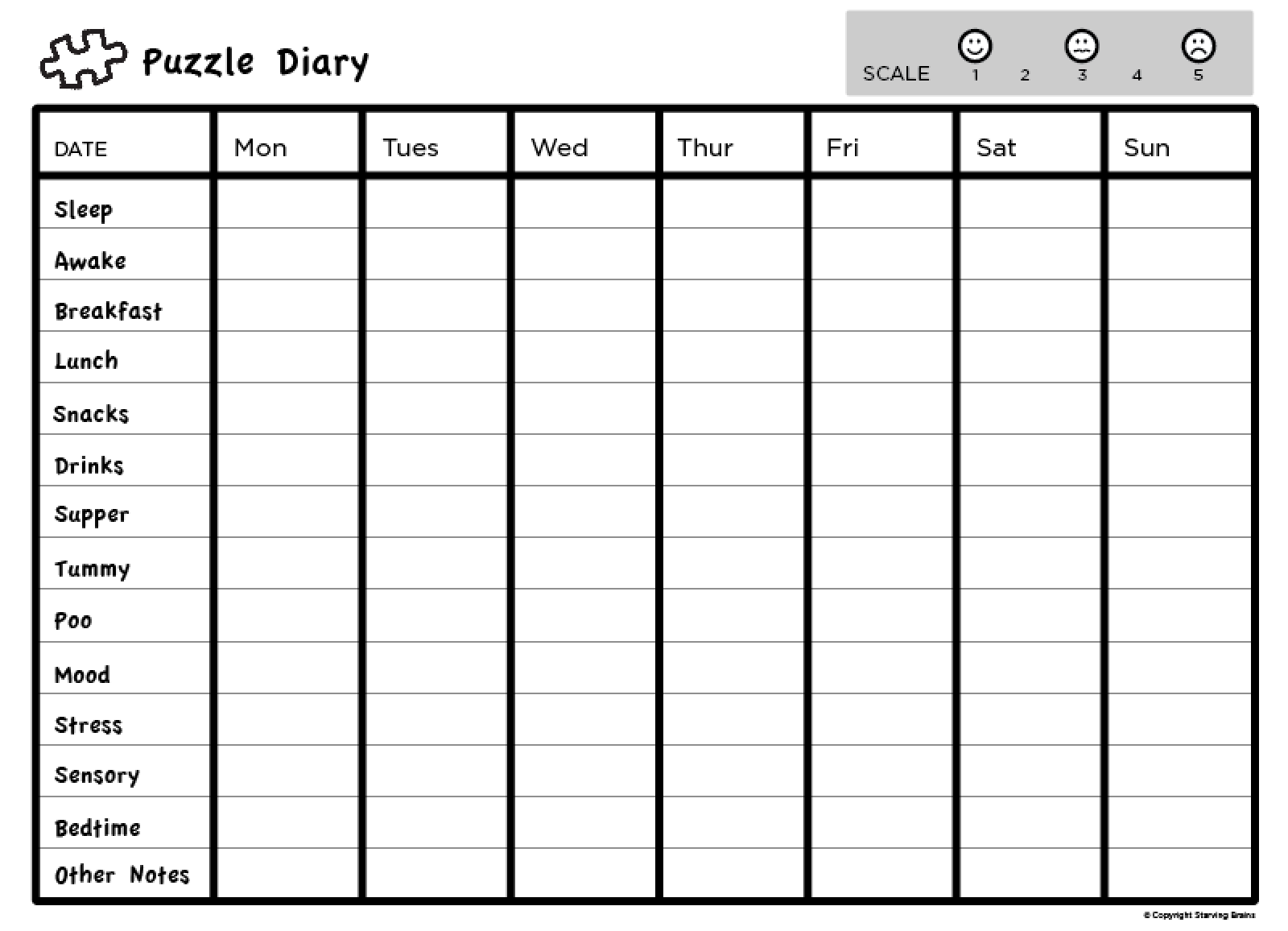“ For many people therapy alone simply isn’t enough ”
Kimberley Wilson
Psychologist, Mental Health advocate & author of ‘Building a Healthy Brain’

There are many pieces to the mental health jigsaw.
Every piece helps support the full picture
There is no silver bullet in supporting mental health struggles, each piece of the jigsaw has a role to play
Always seek help from your GP or paediatrician
Rule out PANS & PANDAS
Ask for a referral to Child & Adolescent Mental Health Services (CAMHS)
Ask for Cognitive Behavioural Therapy (CBT), Speech & Language Therapy (SLT) & Occuational Therapies (OT)
Nutrition is one piece of this jigsaw and can be used alongside all of the above
Ruling out PANS & PANDAS
Paediatric Auto-immune Neuro-psychiatric Syndrome
PANS is a neuropsychiatric condition which is triggered by a misdirected immune response resulting in brain inflammation in children
Symptoms can span OCD, ASD, ADHD, Tics, disordered eating, as well as struggles with anxiety, sleep, sensory processing, mood swings, behavioural outbursts and regression
Misdiagnosis
Symptoms can mirror other disorders, notably OCD, ADHD, ASD, Tics, eating disorders. Alongside struggles with anxiety, sleep, appetite and sensory processing dysfunction.
These similarities lead to a percentage of children being misdiagnosed with other psychiatric disorders such as OCD, ASD, ADHD - missing that these symptoms are triggered by misdirected immune response & inflammation.
Symptoms
If a child has several of these symptoms they are eligible for PANS screening via the GP. Awareness is still very low amongst the medical community, even though PANS & PANDAS have international recognition.
Although diagnosis requires ‘sudden onset’, this is now being expanded by many practitioners. If your child didn’t display symptoms beforehand, and symptoms came on gradually or drastically over the course of months, days or hours, this could still be due to underlying immune response & inflammation.
Auto-immune triggers
PANS stems from an immune system compromise and inflammation, often following an infection or multiple infections.
PANDAS is specifically due to streptococcus infection.
The derailed auto-immune response & inflammation ‘attacks the brain’ triggering psychiatric symptoms.
This could happen at any age during childhood, after any infections or illness.
For further resources check out Aspire and PANS PANDAS UK
A diverse diet of home cooked meals should provide sufficient nutrients, however in some children, sensory & gastro dysfunctions can interfere with appetite and absorption.
This is where nutrition support comes into play, helping to rule out underlying factors impacting nutrient absorption and appetite, alongside practical steps to help at home.
Nutrition was never on our radar beyond what was for tea! A nutritionist was surely only for health obsessives who loved juice cleanses and chia seeds? How wrong could we have been. The chemistry and biology of the body, foods, digestion and absorption are key to many aspects of our immune system and wellbeing.
Evidence-based means practitioners use the results from a stool test to create a personalised treatment plan. Testing gives a snap shot of the gut microbiome bacteria, parasites and other things in play such as inflammation. In addition urine, hair & DNA tests can also give a fuller picture regarding nutrient deficiencies and auto-immune system dysregulation.
All of the above can help point towards factors impacting symptoms such as sensory processing being out of kilter; taste, smell, hearing, touch & light sensitivities
As well as struggles with sleep, appetite, attention span, focus, invasive thoughts & anxiety, in addition to gastro symptoms and malabsorption
Find a qualified evidence-based paediatric Nutritional Therapist or Dietitian with experience in neuropsychiatric symptoms.
It's important to find a practicioner who is appropriately qualified and registered by a trustworthy professional body & has relevant paediatric experience.
There are several well respected professional bodies in the UK that have lists of nutritionists who have received an approved level of training, although they won’t all have relevant paediatric experience.
Search for a registered nutritionist near you:
British Association for Nutrition & Lifestyle Medicine (BANT)
Complementary & Natural Healthcare Council (CNHC)
“ It is clear that children with an ASD or ADHD diagnosis are often more vulnerable to difficulties in mood, behaviour, learning and sleep ”
David Rex, RD
Specialist Dietitican, NHS Highlands, BDA advisory
David Rex RD
An Evidence-based, “Common Sense” Approach to the Evaluation of Dietary Interventions in ASD and ADHD:
Extract:
Promotion of a “balanced diet” based on the 5 food groups as shown in the “Eatwell Plate”
Eating regularly and not skipping breakfast
Eating at least 5 potions of fruit and vegetables a day (for folate, magnesium, antioxidants in general and fibre)
Reduction in soft drinks /confectionery containing specific artificial food colours / benzoate preservatives (added benefit of reducing empty calories)
Consideration and possibly testing of vitamin D status with oral supplements for northerly latitudes, dark skin or indoor lifestyle
Eating oil rich fish or taking omega 3 supplements
For those with an inadequate diet, the use of a multi-purpose vitamin and mineral supplement where no ingredients exceed the reference nutrient intake
Measurement of Ferritin stores and prescription of Iron supplements depending on results
Ensuring the inclusion of Iron and Zinc rich foods or using supplements
Consideration of food intolerances to a range of foods through trial and error but only under the supervision of a State Registered Dietitian
Finding the missing pieces of the mental health puzzle.
Play Symptom Bingo to help identify some of your child’s struggles
If you ticked more than half of these then chances are your child is struggling with:
Sensory processing issues
Challenges switching off their brain at bedtime
They may even have underlying GI issues, inflammation or food sensitivities
Download this sheet to print out at home
Keeping track of progress.
The Puzzle Diary
It can sometimes be helpful to keep a diary. Pin this chart on the fridge - it could help plot progress or identify ongoing challenges.






